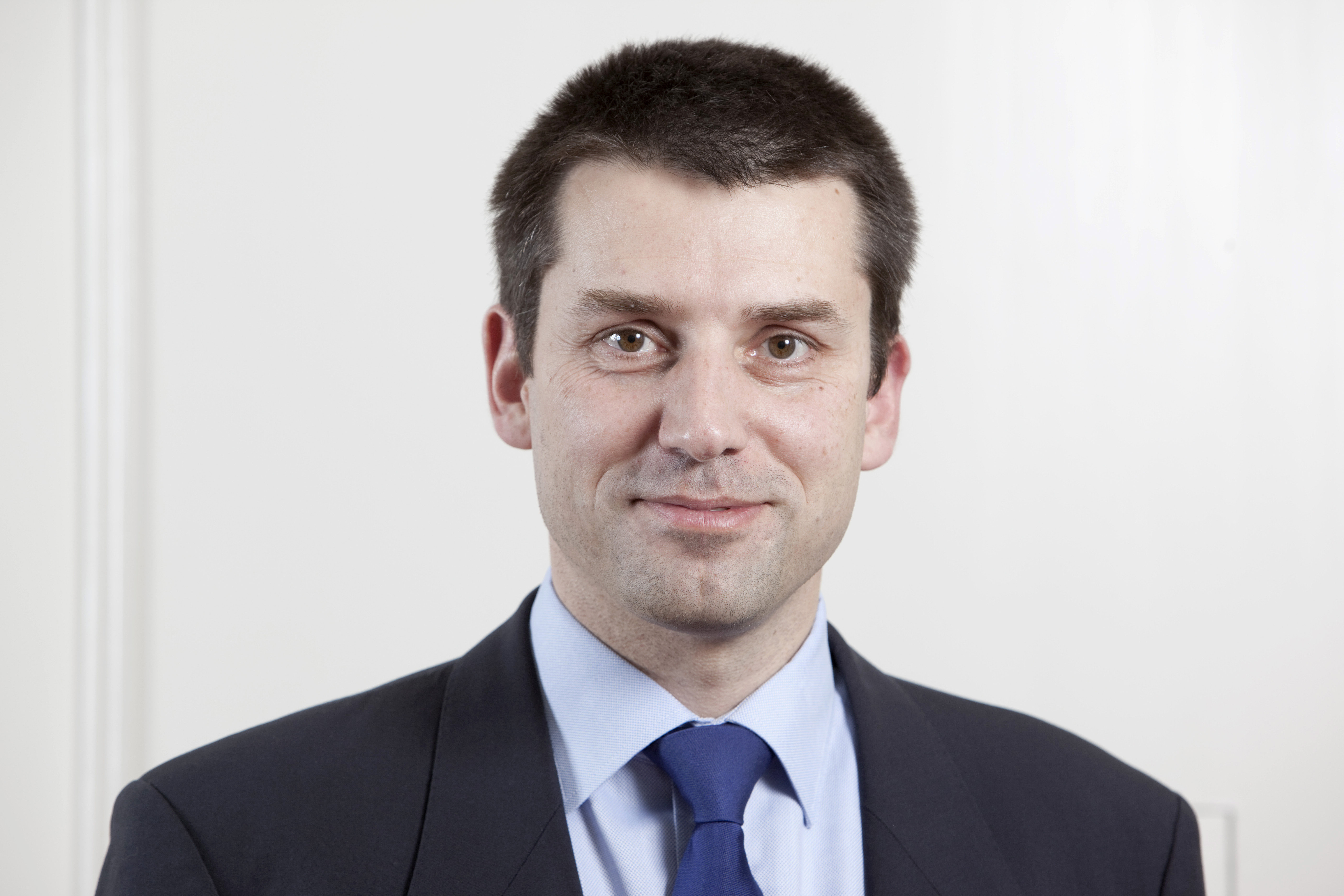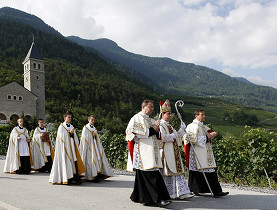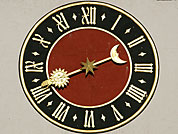Protestant Church “needs to speak out”

The Federation of Swiss Protestant Churches, faced with dwindling numbers, has appointed a charismatic new president to head the organisation from January 2011.
Gottfried Locher tells swissinfo.ch he is determined to give the Protestant Church more visibility and to clearly present what it stands for.
The 44-year-old Bernese pastor says he is excited by the challenge of leading the country’s 2.4 million Protestants.
swissinfo.ch: What will your priorities be; how do you hope to shape the Church?
Gottfried Locher: Personally, what is high on my agenda is to show that the Protestant tradition is about a Christian life which can be communicated to others, which is understandable, which is attractive and something which people would like to join and be part of. It is both a movement and a place where you can feel at home.
swissinfo.ch: That sounds like quite a big challenge.
G.L.: Sure. Right now I think it is a challenge for all the [Christian] traditions to explain to society why the Church is something they should be interested in. And we’re no different.
swissinfo.ch: You have said the Federation should speak with a clear voice. What issues should the Church in Switzerland be speaking out on today?
G.L.: It’s multidimensional. There’s a spiritual side first. The Church should speak about Jesus Christ. And the way he taught us to live, the values he gave us. That’s at the heart of what every Church should be doing.
But this then links with social engagement, the social and political issues in which the Church wants to get involved, for instance when it comes to the question of gender equality in the working environment or how the rich and poor countries relate to each other. This is where the Church should speak out.
swissinfo.ch: What about specific issues here in Switzerland. Should the Church be speaking out about the recently mentioned reinstatement of the death penalty or the wearing of the Islamic burka, for instance?
G.L.: Yes, I think these are things to take a stance on, but we have to be careful and not deliver a response too quickly. We should wait until the arguments are on the table, and perhaps things have calmed down a bit, and then speak out. If we are the first to give an opinion, it may not be a sound, integrated view of the whole picture.
The death penalty would be an easy issue. There the position of the Church is quite clear, but if you go to the beginning of life, to the question of abortion, the various Christian denominations seem to disagree.
swissinfo.ch: The Protestant Church is losing members. A recent survey says it could shrink from 33 to 20 per cent of the population by 2050. How much does this bother you?
G.L.: It doesn’t bother me that much in absolute numbers but it does bother me as a trend. If we are not capable of communicating to people what we stand for and that the Church is an attractive place to be, we are not true to our mission. As long as this trend continues we need to worry about it.
swissinfo.ch: How can the Church retain its credibility when it is losing members and when it seems increasingly to be representing the older generations?
G.L.: It bothers me particularly that in our [Christian] tradition we have more problems approaching younger people than other traditions do, for instance the Roman Catholics.
Credibility is high on the agenda. What does it mean if a Church is credible? It first of all means it passes on the mission it has been given – we don’t decide ourselves what is important or not in the Church, it is what Jesus Christ has taught us. To do that clearly and without hiding it by social talk, I believe that is the first step. We must be more outspoken about our faith.
swissinfo.ch: So in a way you need to pin your colours to the mast and have a statement of belief?
G.L.: Yes, I think that’s true. This statement isn’t just talk. It has also got to do with our programmes as a Church. Where do you spend your money?
swissinfo.ch: Does the Church need to advertise then, and tell people what it is doing?
G.L.: I think Church worship is what we should be focusing on. If we can deliver a form of worship on Sundays, but not only then, where people feel at home and at ease that’s the best advertisement. If we cannot do that, no quantity of advertisements will help us.
swissinfo.ch: How do you tackle the problem of boring sermons?
G.L.: There are two ways. The first would be by personal example. When I go out and preach somewhere it must be done in a way that people think, ‘this is actually quite fun to listen to.’
But it’s also a question of education, of training future pastors, and there I think we have to put more emphasis on how to deliver a good talk.
swissinfo.ch: You have been a Church ecumenical advisor and still work at the institute of ecumenical studies at Fribourg University. As the religious landscape changes, is it becoming more important to work with other religious groups?
G.L.: Yes, it has become more important. But you also have to strengthen your own profile. You can hardly explain to people what you stand for if it’s only done through inter-religious dialogue. So, yes, dialogue with other faiths is important, otherwise we will jeopardize this religious freedom and the relative peace we have in Switzerland. But at the same time we stand for something else than other religions and we must speak out about that.
In urban societies now you get something we haven’t had in Switzerland for a long time and that’s the so called migrant churches, where people from a similar Christian tradition but from another cultural background hold their own worship services. Here in Bern most of them are of African descent. My Church is trying to link these groups with the established Church. And that is an important issue, I think, for social cohesion.
swissinfo.ch: You have recently been elected to vice-president of the World Communion of Reformed Churches. How important is the contact with the churches abroad?
G.L.: It is vital. If we do not have an open mind and contacts with other Protestant churches, we are in constant danger of viewing the Church as something only local. It is a constant temptation to become self-satisfied and self-righteous.
When it comes to questions of social justice, there’s no point in just acting on a national level. The scene of social justice has become multinational and we have to speak jointly.
Morven McLean, swissinfo.ch
Religious breakdown of the population, 2000 census:
Roman Catholic – 41.8%
State-recognised Protestant – 33.0%
Free (mainly evangelical) Protestant – 2.2%
Old Catholic – 0.2%
Orthodox – 1.8%
Other Christians – 0.2%
Jewish community – 0.2%
Muslim – 4.3%
Buddhist – 0.3%
Hindu – 0.4%
Other – 0.1%
No religion – 11.1%
Since 2006, head of the institute of ecumenical studies at Fribourg University.
Pastor of the Swiss church in London from 1995-1999, during which time he was a regular Swiss Radio International listener.
Will serve as president of the Council of the Federation of Swiss Protestant Churches from 2011-2014.
Aged 44, he is married with three children and lives in Bern.
He has a doctorate in theology and an MBA from London Business School.
An alliance of 26 Protestant churches (24 Reformed cantonal churches, the Evangelical Methodist Church in Switzerland and the Église évangélique libre de Genève). In terms of population in 2000 the Federation represented around 2.4 million Protestants.
The Federation represents the concerns of Swiss Protestantism at a national and an international level. Organised as an association, it is governed by the Council (nine members) under the leadership of Rev Thomas Wipf. Gottfried Locher takes over as president on January 1, 2011.
The Federation is a conversation-partner with, among others, the federal authorities and national secular and religious organisations like the Swiss Bishops Conference and the Federation of Swiss Jewish Communities. At an international level the FSPC represents its members, for example, in the World Council of Churches (WCC), in the World Communion of Reformed Churches, in the Conference of European Churches (CEC) and in the Community of Protestant Churches in Europe (CPCE).

In compliance with the JTI standards
More: SWI swissinfo.ch certified by the Journalism Trust Initiative




You can find an overview of ongoing debates with our journalists here. Please join us!
If you want to start a conversation about a topic raised in this article or want to report factual errors, email us at english@swissinfo.ch.